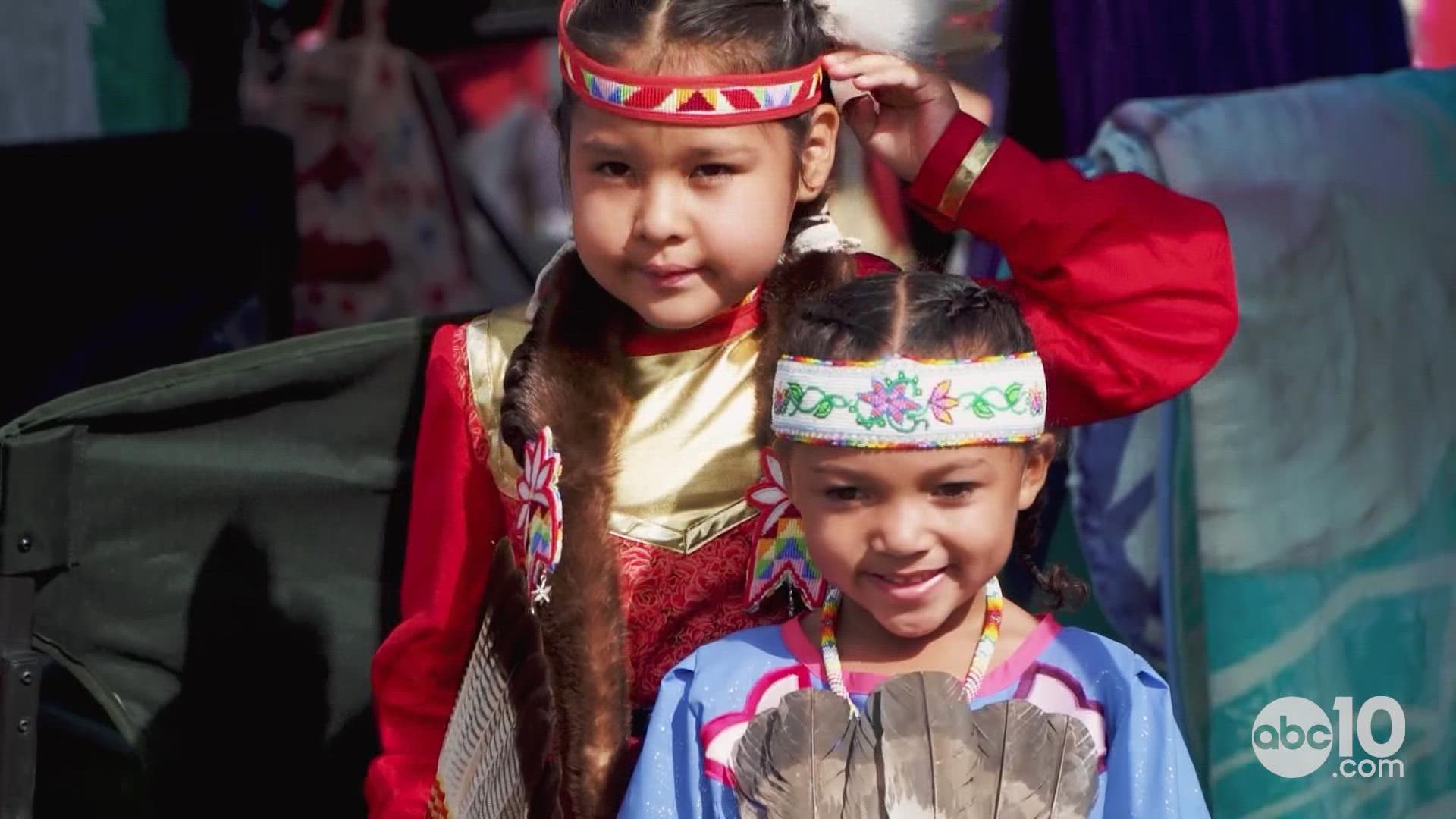SACRAMENTO, Calif. — According the Associated Press, a Centers for Disease Control and Prevention November report shows that Native Americans are nearly twice as likely to test positive, three times more likely to be hospitalized, and two times more likely to die from COVID-19 than white people.
Vaccinations help prevent the worst effects of COVID but some Native Americans, like every other group, are reluctant to get vaccinated.
Virginia Hedrick, executive director at the California Consortium for Urban Indian Health, said the single main reason for COVID-19 vaccine hesitancy in Indian Country is mistrust.
"It's largely mistrust of government systems, both state and federal," she said.
Hedrick pointed to the Spanish Flu and how it "disproportionately impacted American Indians." She added that, decades later, it is difficult to find true and accurate data when it come to cases and deaths among — not just Native Americans — but people of color.
"But you can tell anecdotally through different storytellings that Indian people on reservation were dying from the Spanish Flu at rates that are not being seen in other communities," she said. "And so we have every right to mistrust the federal government and to mistrust clinical trials."
Hedrick pointed to COVID-19 vaccine trials seen in 2020 and questioned if Native Americans were part of those trials.
"So, I think you know that sort of unpacking mistrust means a lot of things. It's mistrust of the research, because we all watched (the) research in real time and (were) involved... in ways that we never have been before and really have no business being involved in. But here we are involved in it."
Other factors Hedrick pointed to that create vaccine hesitancy for those in Indian Country include:
- Mistrust in the vaccine and the pandemic as it turned political
- The issue of misinformation being spread online and through communities
Why it's hard to know how many Native people are vaccinated
Stemming from the mistrust, it is difficult to pinpoint exactly how many people in Native American communities, or Indian Country, are vaccinated or have had COVID-19. That is because when the pandemic started, officials and healthcare leaders in Indian Country in California and across the U.S. had to make a choice: either go with vaccine distribution through Indian Health Services (IHS) or the state they were in.
"That's really interesting as an Indian person, right? Like who do we trust in this pandemic? Who is going to come through?" Hedrick said.
Ultimately, she said many tribal health and urban Indian organizations went with IHS right away.
"Nearly the same day that California itself received federal vaccines, we had vaccine allocation in our Indian health programs immediately and ahead of our other community health center partners in our same county and the (tribal) clinics who chose the state changed their minds," Hedrick said.
But there is a conundrum.
IHS is a federal entity and not a state run organization, so getting and receiving exact data on who was vaccinated or how many is difficult to record.
"You know, originally we thought, 'Oh well, it'll be easy', but it's not easy. It's like two different HR systems. Some of them worked with current HR, some didn't," Hedrick said. "Ultimately, some facilities got some from state and some from the feds, and so the ones they got from the state they entered them into the state, the ones they got from the feds they entered them into the feds."
She said this is the same issue when it comes to reporting how many COVID-19 cases there are among Native Americans.
Combatting vaccine hesitancy in Indian Country
There is a push to combat vaccine hesitancy in Indian Country on a national and state scale.
Just this month, it was announced that the latest phase of the For the Love of Our People campaign — a partnership between IllumiNative and Urban Indian Health Institute — is using $900,000 from the Chan Zuckerberg Initiative to focus on family and generational pride to encourage vaccinations.
Priscilla Chan and Mark Zuckerberg are distributing $15 million to an array of nonprofits working to build confidence in vaccines among people who have been most affected by the pandemic, Kishore Hari, program manager of the Chan Zuckerberg Initiative said to the Associated Press.
Here in the state, the California Consortium for Urban Indian Health has continued to hold Facebook live sessions that bring in Native American healthcare leaders to give information and facts to attendees.
"Then we started putting out as much information as we could, like infographics that were chewable, digestible in language (and) that made sense to people in terms of like what are our values as indigenous people," Hedrick said.
Resources:
(Editor's Note: This article has been edited to remove some of the vaccine distribution data that was misinterpreted.)
ABC10: Watch, Download, Read

















